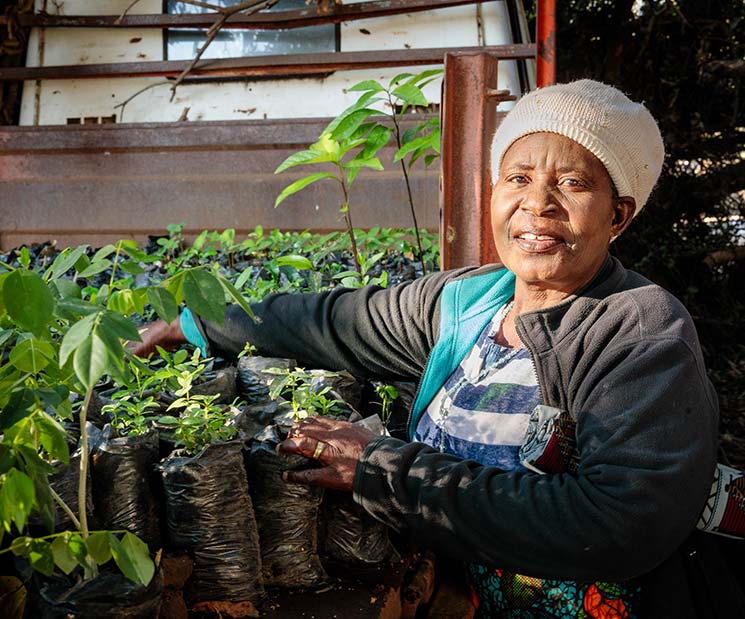News Briefs | Fall 2023
Mali Eliminates Trachoma as Public Health Problem
Mali announced in May that it had become the 17th country to receive the World Health Organization’s validation of the elimination of trachoma as a public health problem. The Carter Center has worked in the county alongside Helen Keller International and Sightsavers to support the government of Mali in its fight against the bacterial disease.
The Malian program has overcome significant challenges to reach this accomplishment, including vast terrain, disease prevalence, political instability, and conflict. A 1996 survey found trachoma in nearly every region of the country with nearly 10 million people at risk of going blind. Mali has now become the first country with such significant levels of trachoma at program inception to achieve validation status.
“This success has given us confidence to continue investing in neglected tropical diseases to ensure all families can both access and afford the care they need not only to eliminate specific diseases, but also to achieve improved public health in general,” said Sadi Moussa, the Carter Center’s senior country representative in Mali.
The Carter Center and its partners worked together under funding provided by the Conrad N. Hilton Foundation.

A member of the Climate Advocacy Team in Gwembe, Zambia, shows off some of the 4,500 seedling trees the community is planting to help fight climate change.
Climate Change Project Launches in Zambia
Last year, The Carter Center launched its first-ever climate change project in Zambia, working with local residents in four rural communities in Zambia to raise awareness about the causes of climate change and ways to counter its impact.
Each community formed a climate advocacy team, working together with Carter Center staff to develop climate change mitigation strategies designed to meet the needs in their areas.
For example, in Gwembe in southern Zambia, the team shared information with residents on adapting how and where they plant subsistence crops to decrease the chances of them being swept away during heavy rainstorms.
Because Zambia loses about 740,000 acres of forest — in part because people in rural areas cut down trees to produce charcoal to sell to feed their families — the team in Gwembe launched a tree-planting campaign. They’ve set a goal of planting 4,500 seedlings in two years and have already planted more than 3,200.
With climate change increasingly affecting the Carter Center’s peace and health efforts, the Center plans to continue to integrate climate change work into its programming.
Liberia Programs Brought Access to Justice, Information
The Carter Center is wrapping up its peace work in Liberia after 16 years. After such a long history of programming in the country, there are many accomplishments to note.
The Center’s Access to Justice Project recorded 5,324 cases resolved by Center-trained traditional leaders; assisted 25,000 clients with legal aid support or victim’s assistance; trained over 7,400 traditional leaders, women, and youth in conflict mediation and consensus building; and closed over 21,000 cases through community justice advisors.
The Carter Center raised public confidence in the formal criminal justice system. It reached 45,945 citizens through direct awareness raising, developed 24 radio messages to inform the public of their rights, and supported 3,713 citizens through referral and accompaniment services.
The Center helped institute the Civilian Complaints Review Board, an oversight mechanism for complaints against law enforcement. The Center raised awareness of the new accountability mechanisms among nearly 1,800 security sector officers and agents and conducted multimedia outreach.
The Center’s women and access to information project served more than 2,500 women in five counties. The project raised nearly 1,000 individual champions and helped 60 organizations begin advocating for women’s access to information, trained nearly 150 public servants to improve information flows, helped women file 1,800 requests, and helped increase government response rate by 41%.
Global Impact Starts with You
Your support sustains the Carter Center's mission of waging peace, fighting disease, and building hope around the world.
